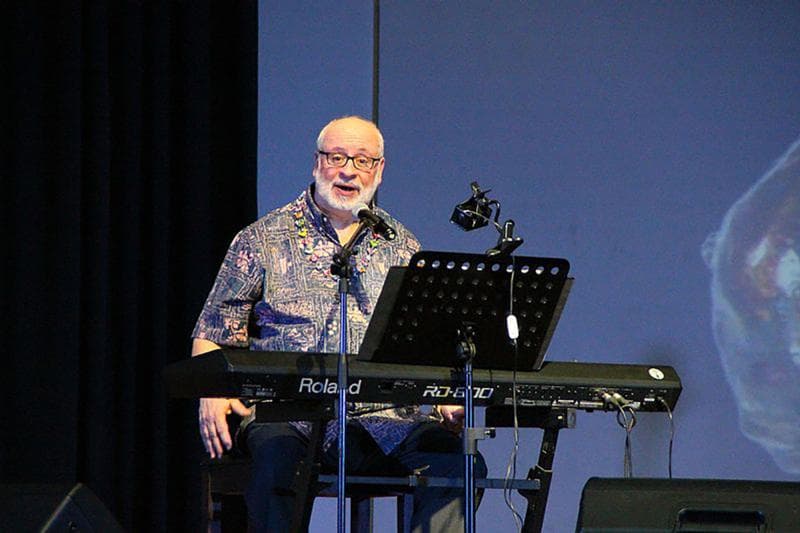ST. PAUL, Minnesota — Catholic hymn composer David Haas is not permitted to give presentations, workshops or concerts at events hosted by Catholic entities in the Archdiocese of St. Paul and Minneapolis, and his music will no longer be used at archdiocesan events, the archdiocese announced July 8.
Tim O’Malley, archdiocesan director of ministerial standards, said in a statement the archdiocese has received new, independent reports from women in different parts of the United States alleging that Haas “engaged in inappropriate conduct” with them when they were young adults in the 1980s. The reports are “similar in nature to the conduct described in previous allegations,” O’Malley said.
In late May, Into Account, a nonprofit that supports abuse survivors, emailed Haas’ associates to notify them that several women had accused Haas of “spiritual manipulation” and “sexual offenses.”
The archdiocese also reported in June that it had denied Haas a letter of suitability, which states that an individual is in good standing in his or her home diocese and includes a statement affirming that no allegations of sexual abuse or impropriety have been made against him or her. It also reported that in 2018 it had received two reports that Haas had “acted inappropriately” with adult women in other states. It had previously received a similar complaint in 1987.
Haas has denied any wrongdoing.
The archdiocese shared the new allegations July 8 “in the interest of accountability and transparency and believe that it may assist others, as it has assisted us, in making informed decisions,” O’Malley said.
“Survivors of sexual harassment and abuse deserve support and understanding,” he said. “Indeed, our community as a whole has suffered much from those who have used positions of power or privilege to harm others. We have a responsibility to be mindful of this and do what we can to prevent further injury to those who have already suffered harm.”
Archbishop Bernard A. Hebda of St. Paul and Minneapolis determined that Haas may not give presentations or concerts at Catholic entities such as parishes, schools and other institutions in the archdiocese, O’Malley said.
“Likewise, the archdiocese will not use Haas’ compositions at archdiocesan Masses and other archdiocesan events,” he said. “Also, the archbishop has encouraged pastors, principals, and leaders of other Catholic institutions to consider the sensitivities involved with using Haas’ music in liturgies or other parish or school events, and to take appropriate steps to fully support those who have been harmed by sexual assault or abuse.”
O’Malley encouraged anyone with information about possible criminal behavior to call law enforcement. He directed calls about “improper conduct” at a parish or school to be reported to the parish or school, or the archdiocese. Also available for contact is Victoria Johnson, who serves as an independent ombudsperson to the archdiocese on abuse or misconduct related concerns.
Haas directs the Emmaus Center for Music, Prayer and Ministry in Eagan, Minnesota. He is a founder of the Music Ministry Alive program for youth, a five-day summer liturgical program held annually at St. Catherine University in St. Paul from 1999-2017. He also has worked at St. Thomas the Apostle in Minneapolis, the St. Paul Seminary School of Divinity in St. Paul, Benilde-St. Margaret’s School in St. Louis Park and Cretin-Derham Hall High School in St. Paul. He is a member of St. Cecilia in St. Paul, where he has volunteered as a liturgical musician.
According to GIA Publications, Haas’ former music publisher, the composer has published more than 45 collections of original music. His best-known works include “Blest Are They,” “You Are Mine” and “We Are Called.” He also has written several books on prayer and liturgical music. GIA Publications announced in June that it cut ties with Haas after learning of the allegations.
Wiering is editor of The Catholic Spirit, newspaper of the Archdiocese of St. Paul and Minneapolis.














